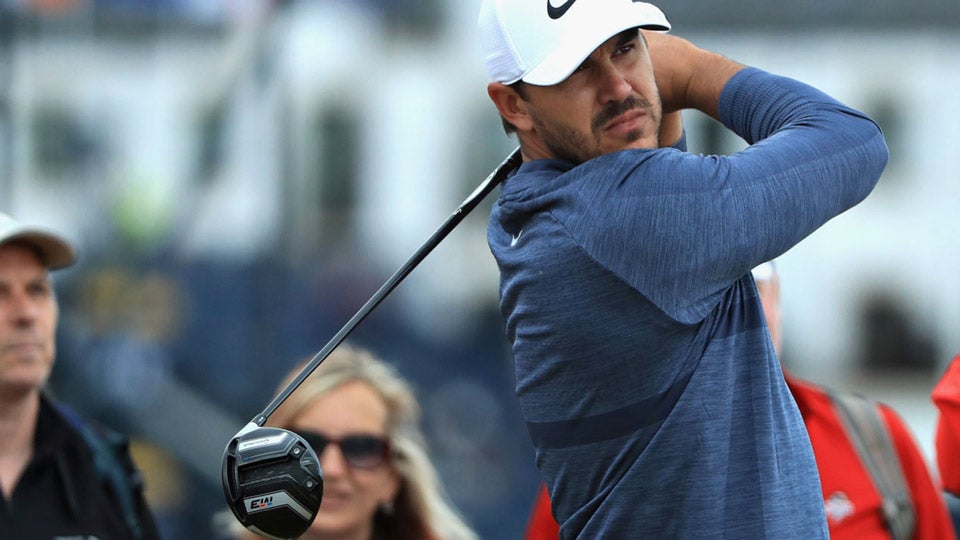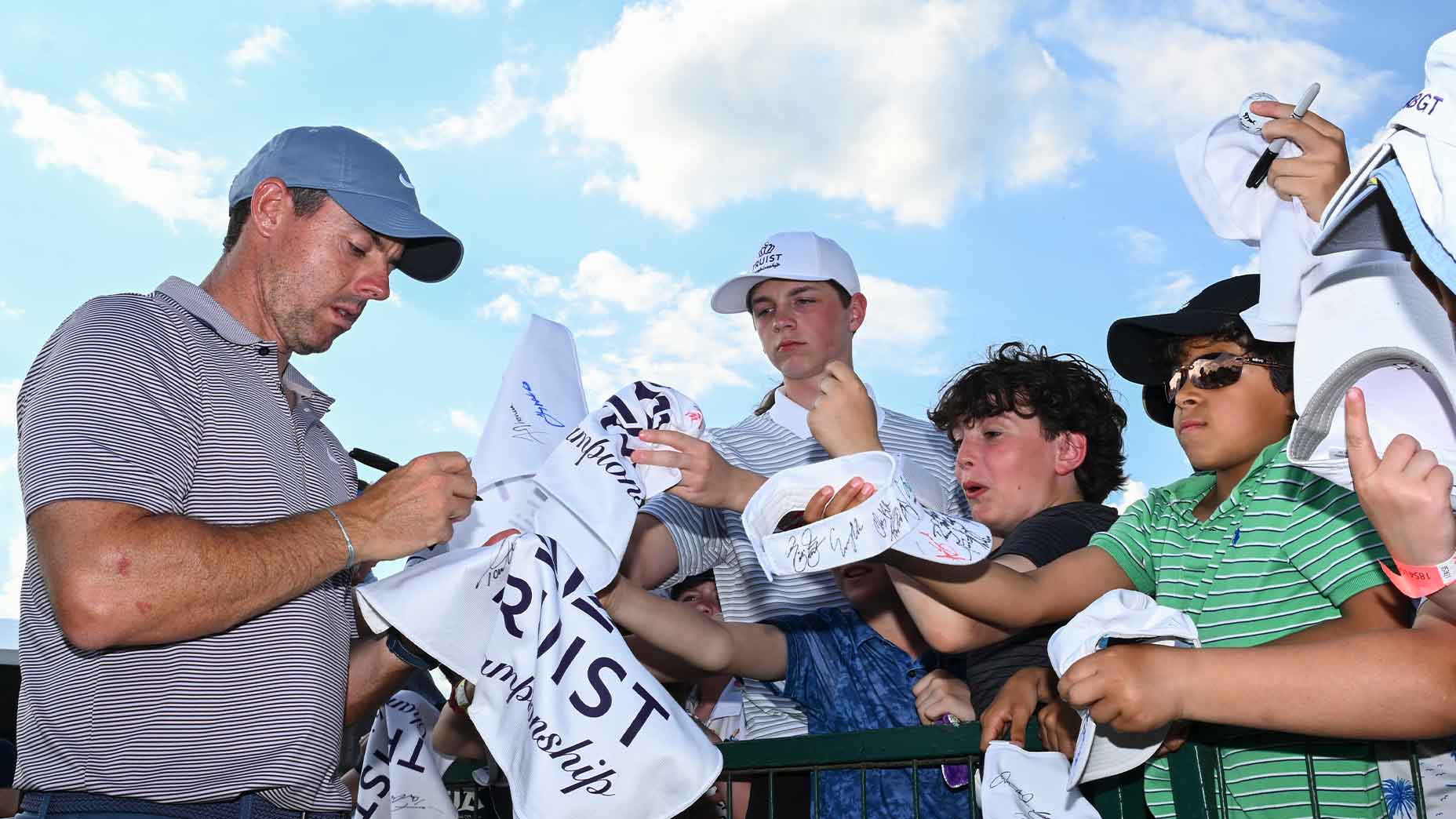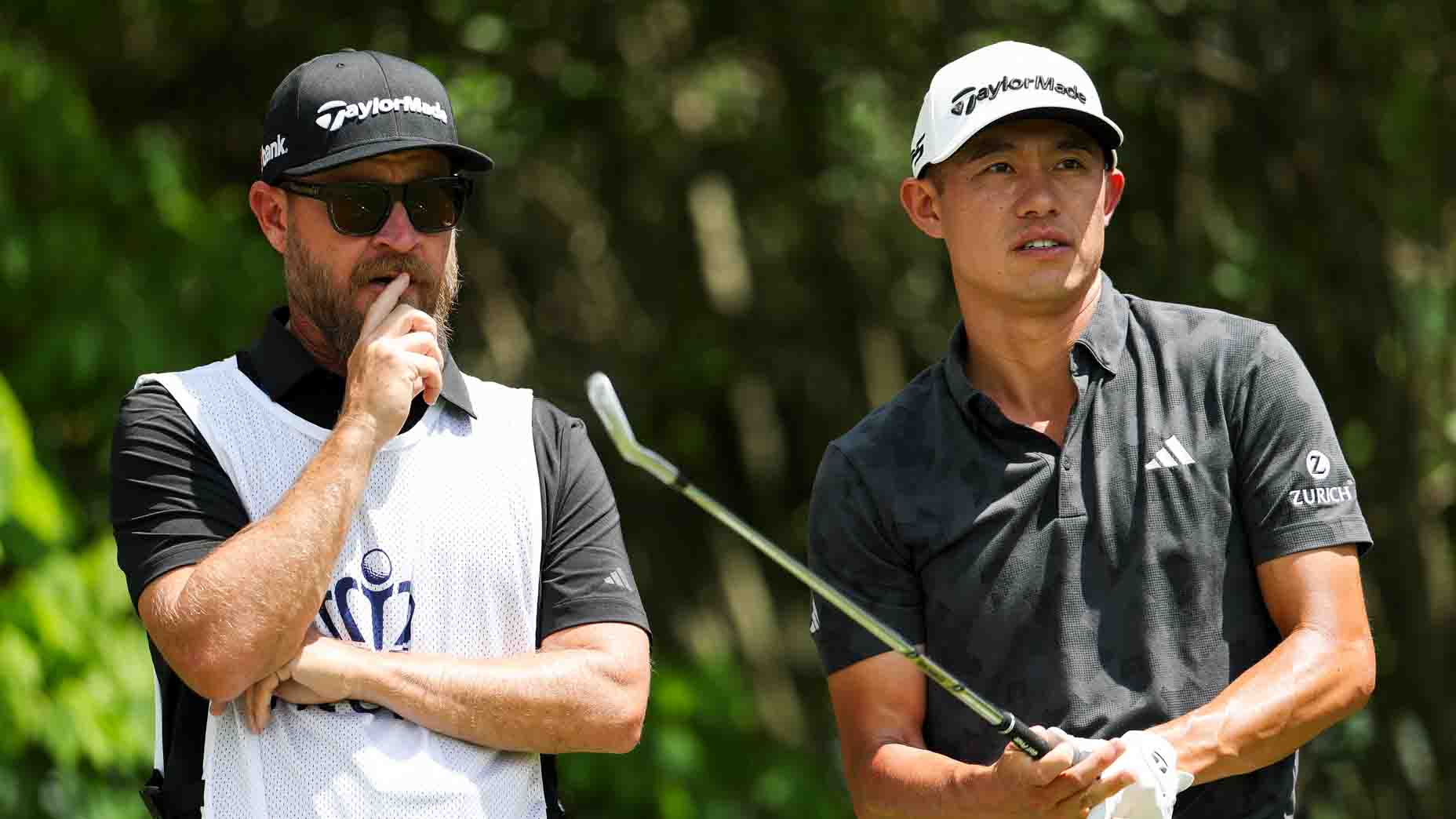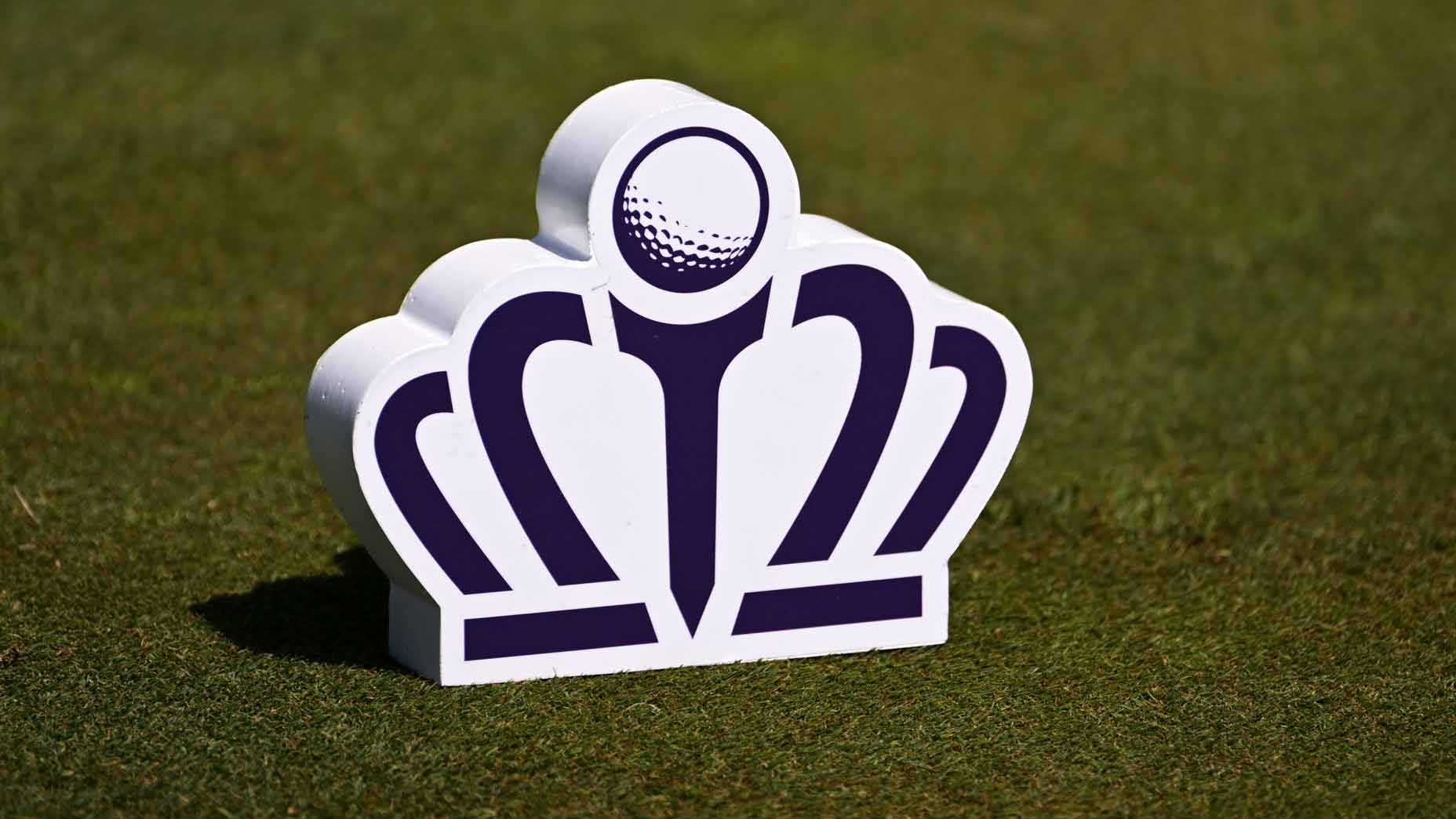This year’s British Open at Carnoustie is already testing players in unfamiliar ways.
Thirty players arrived in Scotland to letters from the R&A requesting their drivers for testing at the equipment standards office by 5 p.m. Tuesday, according to a Golf Channel report. The testing, which included seven major champions as subjects, was a first: the R&A has only tested drivers in the past in conjunction with the USGA’s distance insight project. The PGA Tour has been testing clubs for five years but never randomly; they have stuck to working with manufacturers on a voluntary basis.
U.S. Open champion Brooks Koepka confirmed that his driver passed the coefficient of restitution (COR) test measuring transfer of energy from driver to ball. Brendan Steele and Keegan Bradley were among others who confirmed passing the test.
There were more tests grabbing headlines at Carnoustie, too: for the first time, players will have blood drawn as part of a more comprehensive anti-doping program. While players have been submitted to urine tests in the past, the blood tests come as a result of golf’s inclusion in the Olympics, which requires the sport to follow certain guidelines set out by the World Anti-Doping Agency (WADA). Roughly 20 percent of players, selected at random, will be tested by European Tour officials.
“I’m pretty confident that it’s a clean sport but we’re an Olympic sport these days so rules apply to everybody,” U.S. Open runner-up Tommy Fleetwood told Express UK. “If everybody’s doing the right things then it shouldn’t be a problem. I don’t see any problem with it.”
Gary Player took a less optimistic view of golf’s cleanliness: “We have had players who have used performance-enhancing drugs,” Player said. “Are we ever going to be able to stop it? No. There’s too much involved. That’s the world we live in.”







